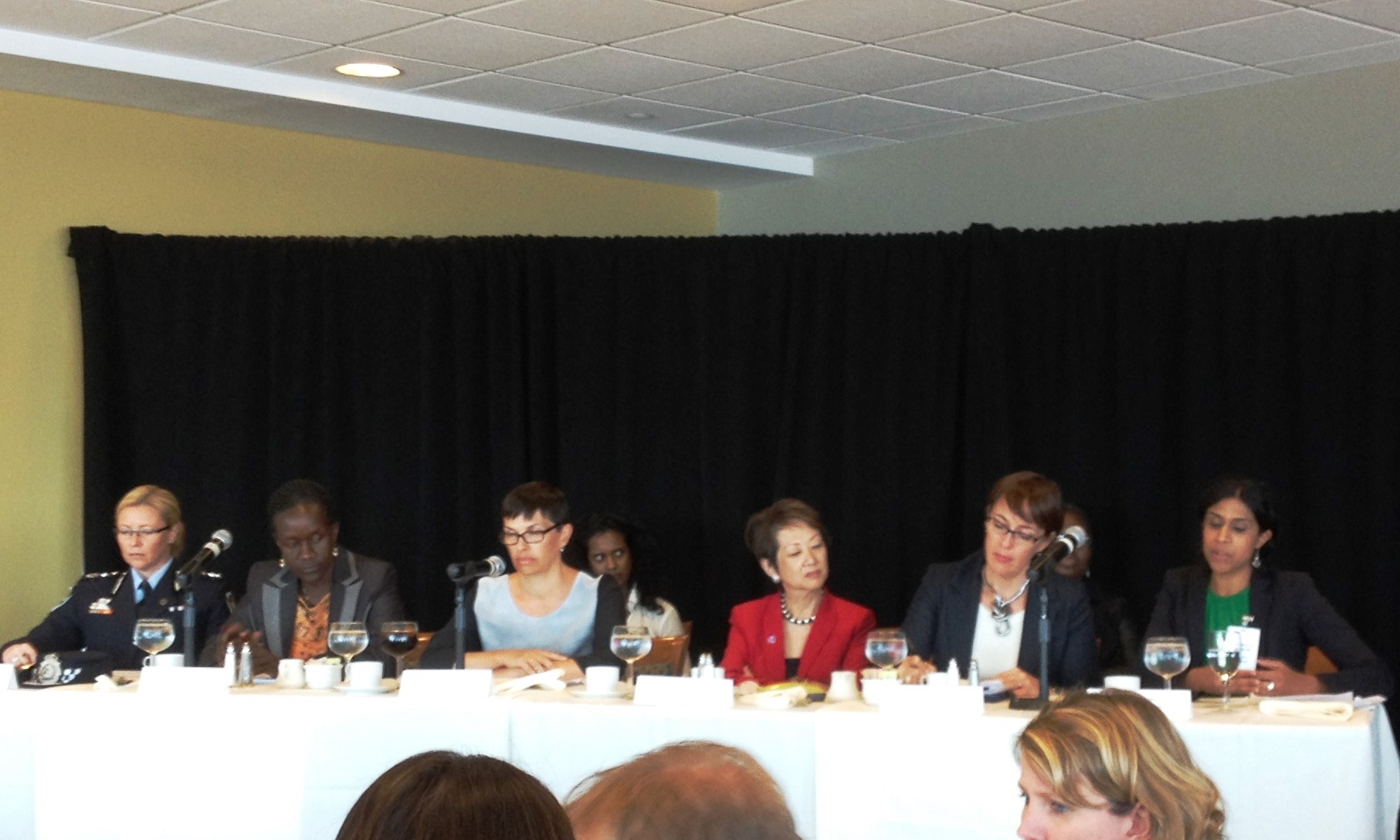Australia Event Emphasizes Need for Concrete Action for Women in PeaceBuilding
On Friday, September 6, 2013, Conciliation Resources, the NGO Working Group on Women, Peace and Security (WPS) and the Mission of Australia to the United Nations (UN), held an event on “Women Building Peace.” Introduced by Australian Ambassador to the UN Gary Quilian and moderated by Australian Global Ambassador for Women and Girls, Penny Williams, the panel featured diverse insights from Karima Obina Lanyero (Acholi Religious Leader's Peace Initiative, Uganda), Zahbia Yousuf (Conciliation Resources), Mandy Newton (Australian Federal Police), Judy Cheng-Hopkins (UN Assistant Secretary General for Peace Building Support), and Sarah Taylor (NGO Working Group on Women, Peace and Security). The event launched the Accord Insight publication of the same name, and addressed contemporary experiences, challenges, and innovations in women's peacebuilding practice.
Aligned with WILPF's belief that calls for concrete action to strengthen gender equality and women's rights and participation in peacebuilding, Yousef highlighted the importance of an integrated approach to long-term and sustainable peace that invests in conflict prevention.  Further, she asked for efforts to link up multi-track peace efforts and attention to such issues as the social and economic welfare of survivors of sexual violence in conflict. Lanyero brought in experiences from the Ugandan conflict to emphasize how women's presence is too often made invisible, and how the exclusion of women in peace talks - such as involvement as “observers” rather than participants - handicaps women and ensures a “raw deal” where “the issues that affect us [women] are not going to come out.” Cheng-Hopkins stressed how failing to invest in women as key change agents, including through financing, training, and capacity-building, is “short sighted and shortchanging” women given the international community's vested interest in keeping and sustaining peace. Newton reflected on how women's participation and leadership can have a ripple effect in inspiring further women's inclusion and bringing in fresh perspectives enabling creative change. Finally, Taylor reminded participants of concrete opportunities for strengthening policy and practice in this area. With Australia as the UN Security Council president this month, WILPF looks forward to seeing how these verbal commitments translate into discussion and concrete outcomes.
Further, she asked for efforts to link up multi-track peace efforts and attention to such issues as the social and economic welfare of survivors of sexual violence in conflict. Lanyero brought in experiences from the Ugandan conflict to emphasize how women's presence is too often made invisible, and how the exclusion of women in peace talks - such as involvement as “observers” rather than participants - handicaps women and ensures a “raw deal” where “the issues that affect us [women] are not going to come out.” Cheng-Hopkins stressed how failing to invest in women as key change agents, including through financing, training, and capacity-building, is “short sighted and shortchanging” women given the international community's vested interest in keeping and sustaining peace. Newton reflected on how women's participation and leadership can have a ripple effect in inspiring further women's inclusion and bringing in fresh perspectives enabling creative change. Finally, Taylor reminded participants of concrete opportunities for strengthening policy and practice in this area. With Australia as the UN Security Council president this month, WILPF looks forward to seeing how these verbal commitments translate into discussion and concrete outcomes.
Click here to learn more about the Conciliation Resources's Accord Insight publications.
